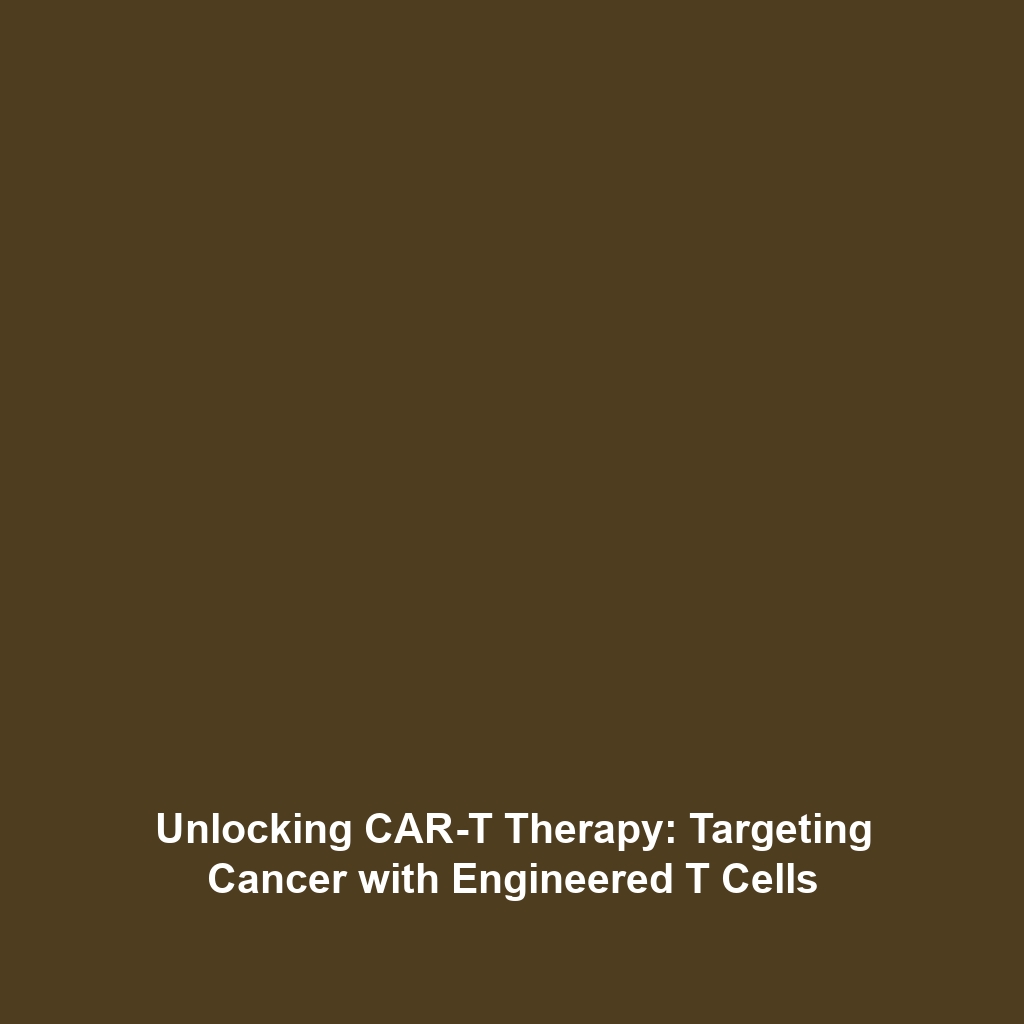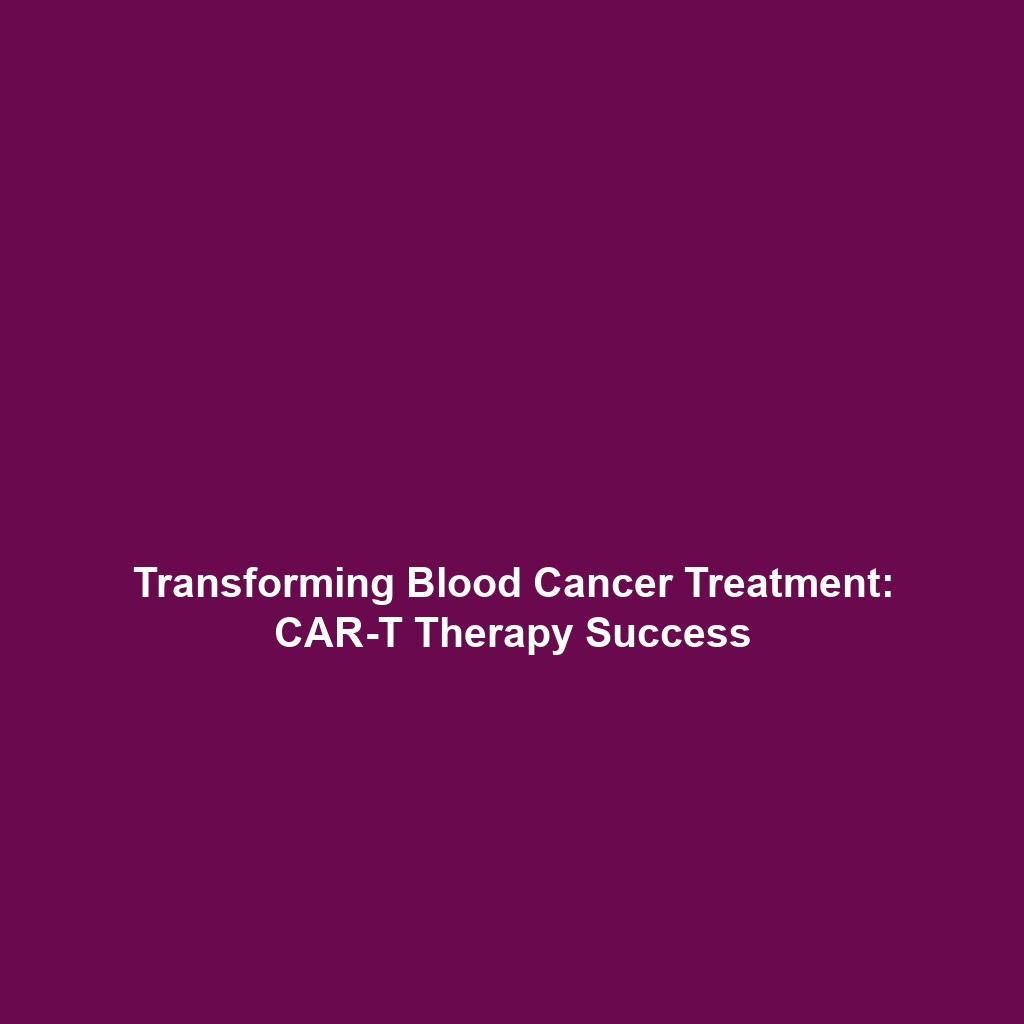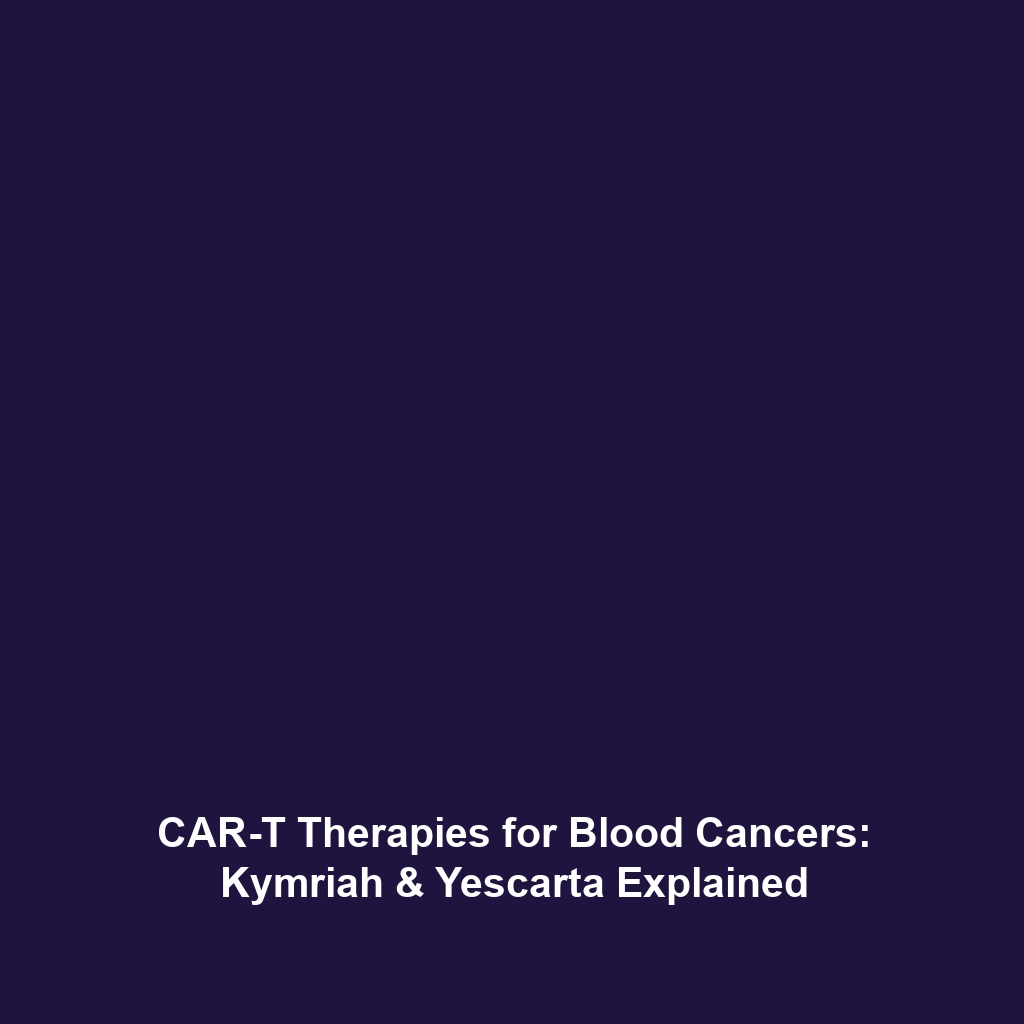How CAR-T Therapy Works: Modifying T Cells to Express Chimeric Antigen Receptors (CARs) That Recognize Cancer Cells
Introduction
Cancer remains one of the leading causes of mortality worldwide, prompting ongoing research to develop innovative therapies. Among these, CAR-T therapy has emerged as a groundbreaking approach in the realm of immunotherapy and cancer treatment. By modifying a patient’s own T cells to express chimeric antigen receptors (CARs), this advanced therapy empowers the immune system to specifically target and attack cancer cells. This article delves into the intricate mechanisms of CAR-T therapy, its applications, challenges, and future prospects, highlighting its significance in the evolving landscape of cancer treatment.
Key Concepts
The fundamental principles of CAR-T therapy revolve around the enhancement of T cell functionality through genetic modification. Below are the major concepts involved:
Chimeric Antigen Receptors (CARs)
CARs are engineered receptors grafted onto T cells. They play a pivotal role in identifying and binding to specific antigens present on cancer cells, thereby facilitating a targeted immune response.
Modification of T Cells
The process begins with a patient’s T cells being collected through a procedure called leukapheresis. These cells are then genetically altered in a laboratory setting to express CARs. Afterward, they are expanded and reintroduced into the patient’s bloodstream.
Targeting Cancer Cells
Once reintroduced, these modified T cells can effectively recognize and destroy malignant cells carrying the targeted antigens, enhancing the body’s natural defense mechanisms against cancer.
Applications and Real-World Uses
The practical applications of CAR-T therapy in the field of immunotherapy and cancer are significant:
- Acute Lymphoblastic Leukemia (ALL): CAR-T therapy has demonstrated remarkable success in treating pediatric patients with ALL, achieving long-term remission in several cases.
- Non-Hodgkin Lymphoma (NHL): Patients with NHL have shown promising responses to CAR-T treatment, particularly those who have exhausted other therapeutic options.
- Potential in Solid Tumors: Research is ongoing regarding the adaptation of CAR-T therapies for solid tumors, which would expand its applicability.
Current Challenges
Despite its revolutionary potential, CAR-T therapy faces several challenges that need addressing for optimal application:
- Cost: The expense of CAR-T therapies can be prohibitively high due to the complex manufacturing processes involved.
- Side Effects: Some patients experience severe side effects, like cytokine release syndrome (CRS), prompting the need for careful monitoring.
- Limited Scope of Targets: Current CARs primarily target specific blood cancers, making it necessary to develop new receptors for broader applicability.
Future Research and Innovations
The future of CAR-T therapy is bright, with numerous ongoing research initiatives aimed at enhancing its efficacy and safety:
- Next-Generation CARs: Researchers are exploring dual-targeting CARs that can bind to multiple antigens, which may improve tumor recognition.
- Combination Therapies: Integrating CAR-T therapy with other cancer treatments, such as checkpoint inhibitors, is under investigation to enhance outcomes.
- Better Manufacturing Techniques: Innovations in production processes aim to reduce costs and improve the availability of CAR-T therapies.
Conclusion
In summary, CAR-T therapy represents a paradigm shift in cancer treatment, leveraging the body’s immune system to combat malignancies. As research continues to address current challenges and explore innovative applications, CAR-T therapy may revolutionize immunotherapy in the coming years. For further reading on advanced cancer treatments, check out our articles on immunotherapy advancements and new cancer treatment innovations.


